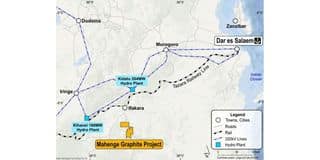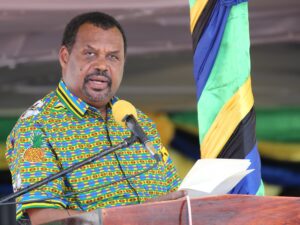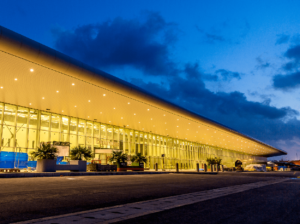Dar es Salaam. The Mahenge Graphite Project secured a massive $179 million (about Sh488 billion) boost over the weekend after three leading African financial institutions, including Tanzania’s CRDB Bank, inked a landmark deal in Johannesburg to fund the extractive venture’s development.
The other financial institutions that were part of the deal are the Development Bank of Southern Africa (DBSA) and the Industrial Development Corporation (IDC).
According to a statement released yesterday by CRDB Bank Plc, the $179 million arrangement encompasses a debt funding requirement of $153 million and an additional $26 million for a bank guarantee to support the mine’s rehabilitation bond.
In this deal, CRDB Bank Plc will serve as the Joint Mandated Arranger, Facility Agent, Onshore Account Bank, and Onshore Security Agent.
The bank has committed a total of $66 million, including $20 million for cost overruns, $20 million for working capital, and $26 million as a rehabilitation guarantee.
The DBSA has committed $59.6 million, while the IDC will contribute $53.4 million.
CRDB Bank’s CEO and managing director, Mr Abdulmajid Nsekela, emphasised that this collaboration not only supports a vital supply chain for battery minerals but also fosters local community development through job creation, infrastructure, and business opportunities.
“At CRDB Bank, we are deeply committed to supporting strategic projects that drive sustainable development and create lasting impact.
Our involvement in the Mahenge Graphite Project demonstrates our unwavering belief in the potential of Tanzania and Africa at large…This project is a testament to what can be achieved when we invest in Africa’s future,” he said..
He noted that this financing exemplifies the bank’s capability to facilitate large-scale projects that enhance the local content framework and leverage regional and international financial networks.
For the project to reach a production stage, Mr Nsekela said, it will also require funding in the form of Equity and Off-take Prepayment (POSCO). As such, he said, the combined financial support of $179 million in debt facilities and rehabilitation guarantee was crucial in derisking the project towards development.
It also attest the strong confidence and commitment of the participating banks to supporting strategic projects that drive sustainable development and economic growth.
The Mahenge Graphite Project is managed by Faru Graphite Corporation, which is the Tanzanian subsidiary of Black Rock Mining. The project covering 324 square kilometres in Tanzania’s Ulanga district, is primarily owned by Black Rock Mining, which holds an 84 percent stake, while the Tanzanian government retains a 16 percent free-carried interest.
The project was developed through a joint venture formed in December 2021.
Black Rock Mining’s CEO and Faru Graphite Corporation’s majority shareholder, John de Vries, highlighted that the signing of the facility agreement marks a major milestone in de-risking the project’s development.
“We look forward to collaborating with DBSA, IDC, and CRDB to advance Mahenge for the benefit of all stakeholders,” he stated.
The Project is poised to be one of the most promising ventures of the country, offering substantial economic and environmental benefits both locally and globally.
It aims to supply natural graphite, a critical mineral for battery production, which plays a pivotal role in reducing carbon footprints through various key applications.
The project is set to create over 500 direct and indirect jobs, while also contributing to regional electrification through the construction of a 220kV power line from the Ifakara substation.
This line will power the Mahenge Graphite Project and extend electricity access to villages within the Mahenge and Ulanga districts.
Moreover, the project will generate significant value chain opportunities for local suppliers, service providers, construction companies, logistics firms, importers, and retailers, enhancing economic activity in the Mahenge District and across the Morogoro Region. The Mahenge deposit is one of the largest in the world.
A greenfield discovery made by Black Rock in 2015, it hosts a resource of 213 Mt at a grade of 7.8 percent Total Graphitic Carbon (TGC) which equates to 16.6 Mt of contained graphite.















